Assessment Report on the Inclusion of the Overseas Gilgit-Baltistan and Chitral Community
1. Introduction
This report evaluates the status, challenges, and opportunities relating to the inclusion of the Overseas Gilgit-Baltistan (GB) and Chitral communities within national and international socio-economic and policy frameworks. By drawing on community feedback, diaspora organisation inputs, and Goodwill Endavours, we can assess how effectively these groups are integrated into relevant inclusion and development initiatives. The conclusions are somewhat pessimistic.
2. Background
The people of Gilgit-Baltistan and Chitral have a long tradition of overseas migration, with communities established in the Gulf States, Europe, and North America. These diaspora members contribute significantly to local economies through remittances, social investment, and skill transfer. However, despite their contributions, many feel underrepresented in national diaspora policies and platforms, leading to greater concerns about inclusion, recognition, and support.
3. Objectives
- To evaluate the level of institutional and policy inclusion of Overseas GB and Chitral communities.
- To identify barriers to equitable participation in national diaspora programs.
- To recommend policy and programmatic measures to enhance engagement and inclusion.
4. Methodology
Period – 2020 to 2025
- Data Collection: Surveys, key informant interviews, focus group discussions, and policy document reviews.
- Geographical Scope: Middle East, UK, USA, and select EU countries with notable GB and Chitral diaspora populations.
- Stakeholders Consulted: Overseas community organisations, government representatives, NGOs, and youth/women groups.
5. Key Facts
Key Facts: Limited Diaspora Contribution to Disability Inclusion in Gilgit-Baltistan and Chitral
5.1 Overview
While the Overseas Gilgit-Baltistan and Chitral (GB&C) diaspora has made significant contributions in education, health, and infrastructure, its role in advancing disability inclusion remains underdeveloped and largely overlooked. The diaspora’s investments and philanthropic activities have seldom prioritised the rights, empowerment, or accessibility needs of persons with disabilities (PWDs) in Pakistan.
5.2 Lack of Targeted Initiatives
- Minimal Inclusion in Diaspora Agendas: Most overseas community organisations focus on education scholarships, cultural events, or emergency relief, but none maintain structured programs for disability inclusion or rehabilitation.
- Charitable, Not Developmental Approach: When disability-related aid is provided, it tends to be charity-oriented (wheelchairs, medical support) rather than rights-based or capacity-building, thus failing to create long-term empowerment.
- Absence of Policy Advocacy: Despite strong social media networks and political engagement, overseas GB&C groups have not leveraged their influence to advocate for government reforms on disability inclusion or accessibility in their home regions.
5.3 Funding and Resource Allocation Gaps
- Diaspora fundraising campaigns and remittances are often directed toward visible community infrastructure (mosques, schools, roads), with little or no allocation for inclusive infrastructure such as accessible buildings, assistive technologies, or inclusive education centres.
- Disability NGOs in GB and Chitral report low engagement from overseas donors, even though the diaspora has a substantial potential to mobilize resources for inclusive initiatives.
- There is no dedicated diaspora trust or fund to support the economic empowerment of PWDs, despite rising unemployment and a lack of vocational training in these regions.
5.4 Weak Collaboration with Local Disability Organisations
- Overseas associations rarely coordinate with local disability-focused groups such as community-based rehabilitation (CBR) centres or special education schools in GB and Chitral.
- This disconnect has resulted in missed opportunities to enhance local expertise, share global best practices, or implement joint programs.
- A lack of institutional partnerships between diaspora networks and local NGOs has hindered knowledge transfer and innovation in disability inclusion.
5.5 Social and Cultural Barriers within the Diaspora
- Cultural stigma around disability remains prevalent within parts of the overseas GB&C community, leading to silence or invisibility of disabled persons in community events and leadership structures.
- There is limited awareness among overseas youth and professionals about the social model of disability or international disability rights frameworks such as the UNCRPD (United Nations Convention on the Rights of Persons with Disabilities).
- The prevailing perception of disability as a matter of personal misfortune or charity, rather than equality and rights, continues to shape community attitudes.
5.6 Impact on Disability Development in GB and Chitral
- The lack of diaspora engagement has slowed inclusive development in GB and Chitral.
- Local disability initiatives remain underfunded and isolated, with minimal international partnerships or technical support.
- Overseas professionals from these regions—many of whom are active in medicine, education, and business—have not yet mainstreamed disability inclusion into their development or CSR efforts.
- Consequently, the diaspora’s influence, while significant in other development sectors, has not translated into measurable gains for persons with disabilities.
Outcomes for us?
Intro
The Gilgit-Baltistan Goodwill Movement (GBGM) is more than just a charity — it’s a lifeline. It offers a second chance for persons with disabilities across one of Pakistan’s most remote and underserved regions. Through skills training, employment opportunities, and community inclusion, GBGM helps individuals rediscover purpose, independence, and dignity
Yet, when people visit the website, many leave inspired but not engaged. They see the vision and believe in the work, but they don’t always take the next step to donate or invest.
Why does that happen?
Even the most compassionate visitors often hesitate to act because of a few subtle barriers.
Generic reasons include:
- The message touches the heart, but not the mind.
Visitors may feel emotionally connected but still wonder what exactly their money accomplishes. They want to help but need a clear picture of how their contribution changes a life. - The story feels too broad.
“Giving a second chance” is powerful — but it’s also abstract. Donors respond more when they can visualize real people and measurable outcomes. - The call to action isn’t clear or urgent.
If the website doesn’t guide visitors toward an action (such as Donate Now or Support a Trainee), good intentions often fade. - There’s a trust gap.
Online visitors need reassurance that their contribution will be used transparently and effectively. Without visible proof — impact reports, testimonials, or updates — even well-meaning donors hesitate. - Donating feels like effort.
If the process requires too many steps or isn’t mobile-friendly, people postpone it — and usually never return.
But There’s Something Deeper — Denial
Beyond these surface reasons lies a deeper, more uncomfortable truth: denial.
During my time in Pakistan, I once met a potential donor who walked into our office, eager to contribute — until they met the people our organization serves. They hesitated. Not because they didn’t believe in our mission, but because the individuals in front of them didn’t “fit the norm.”
This moment revealed something profound: society often denies the full humanity, capability, and dignity of persons with disabilities.
We talk about inclusion — but inclusion is often conditional. Many people want to help “the disabled,” but not necessarily see them as equals, colleagues, or leaders. It’s easier to donate from a distance than to confront our own biases face to face.
This isn’t malice; it’s a kind of cultural conditioning. Ableism is real — not only in policies or infrastructure but in perception. It lives quietly in our assumptions about what a person with a disability can achieve.
And yet, in a world where Artificial Intelligence and robotics are advancing faster than ever — technologies built to augment human ability — how can we still deny opportunity to those who already live with human diversity?
If we can imagine robots performing surgeries, driving cars, or teaching classes, then surely we can reimagine a society where persons with disabilities are recognized as innovators, professionals, and equal contributors to progress.
The real challenge, then, isn’t convincing people that our work matters — it’s helping them confront the denial that keeps them from seeing the people we serve as full and capable members of society.
Outcome-Based Empowerment
This is why GBGM focuses on outcome-based projects — programs that don’t just offer charity but create measurable change:
- Skills training that leads directly to employment.
- Micro-grants that help people with disabilities start small businesses.
- Inclusive hiring partnerships with local enterprises.
- Public campaigns that normalise disability as part of human diversity, not an exception to it.
Each of these outcomes is a quiet act of resistance against denial — and a visible step toward inclusion.
“Denial keeps people apart”
Empowering Lives : Creating Inclusive Opporunities in the Ghizer Region.
The Gilgit Baltistan Goodwill Movement (GBGM) was pleased to announce that on April 10, 2025, it had the honour of welcoming a distinguished donor delegation from the United States of America in Gakuch, Region Ghizer. The delegation, comprising members of the Dhanani and Manji families, visited the region as part of their ongoing commitment to humanitarian causes and community development in Gilgit-Baltistan. This significant visit marked a milestone in GBGM’s efforts to foster international partnerships that support vulnerable communities, particularly persons with disabilities, through inclusive and impactful initiatives.
Supporting disabled people through wheelchairs and sewing machines
The purpose of the donor delegation to Gakuch was to enable these communities to have some investment in these accessibility tools. Over 30 wheelchairs and 100 Sewing Machines were distributed within the region, marking one of the first events in the area.
We, as an organisation, are thankful to the college administration for their support during this event.


Regional Poverty Assessment
During the visit, the delegation saw firsthand the high levels of poverty in the region. Many families could not afford basic mobility aids such as wheelchairs for their children with disabilities. In several cases, parents were seen carrying their children on their backs as they moved around, highlighting the urgent need for support, not only in terms of infrastructure, but also in essential health and mobility services for those most in need.
Caption – A CP Patient, with his Carer 24/7

The need to have a normative discussion – Disabled people in the world
The Imperative of Inclusion: Disability Rights and Social Integration
The Imperative of Inclusion: Disability Rights and Social Integration
For years, the Gilgit Baltistan Goodwill Movement (GBGM) has remained neutral in explicitly advocating for disability rights. However, neutrality does not mean inaction. Too many have failed to prioritize the needs of disabled individuals, perpetuating a cycle of exclusion. Even immigrants, who have benefited from new opportunities abroad, have also failed to see beyond their struggles and advocate for those left behind. Inclusion is not simply a moral obligation; it is a fundamental human right and a necessary step toward a more equitable and prosperous society.
Understanding Disability Beyond Charity
Historically, disability has often been viewed through a lens of charity rather than rights. This outdated perspective, reinforced by personal indifference and societal apathy, has led to attitudes that treat disabled individuals as burdens rather than equal participants in society. While some individuals offer charitable support, this alone does not address the systemic barriers preventing disabled individuals from fully participating in society. True inclusion requires a shift from passive sympathy to active engagement, ensuring that disabled individuals have equal opportunities in education, employment, healthcare, and public life.
Economic and Social Contributions Ignored by Individuals
Disabled individuals are not just recipients of assistance; they are valuable contributors to the economy and society. Yet, due to the unwillingness of many to recognize their potential, they are often denied opportunities to prove their worth. When provided with accessible infrastructure and inclusive policies, they can thrive in various professional fields. However, individuals—including employers, educators, and community members—continue to ignore this fact, choosing instead to exclude them from the workforce and social life. Even immigrants, despite having firsthand experience of overcoming barriers, have often failed to recognize the struggles of disabled individuals in their home communities and advocate for meaningful change. Those who choose not to engage in inclusive practices are not only denying disabled individuals their rights but are also weakening their own societies.
Legal and Ethical Responsibilities Ignored by Individuals
Disability rights are human rights, yet many individuals fail to acknowledge their personal responsibility in advocating for and supporting disabled individuals. In regions like Gilgit-Baltistan, a lack of personal commitment has contributed to inaccessible infrastructure, inadequate healthcare, and limited educational opportunities for disabled individuals. The failure to act is not due to a lack of resources but rather a lack of willingness to prioritize inclusion. Even those who have been exposed to more inclusive societies, such as members of the diaspora, frequently neglect to apply these principles in their own communities.
The Role of Individuals in Change
Every individual has the ability—and the responsibility—to create a more inclusive society. Ignoring disability rights is an active choice that contributes to continued exclusion. People must challenge their own biases, advocate for accessibility in their communities, and provide direct support where needed. Those who remain passive in the face of exclusion are complicit in maintaining an unjust status quo. GBGM, as a movement dedicated to goodwill and social welfare, has a role to play in encouraging individuals to take personal responsibility for advocating and acting in support of disability inclusion.
The Importance of Individual Donations
Achieving true disability inclusion requires financial support, and individual donations play a crucial role in ensuring that disabled people receive the services and opportunities they are entitled to.
These funds help provide essential services such as assistive technologies, accessible infrastructure, vocational training, and healthcare. Individuals who choose to contribute directly empower disabled individuals to lead dignified and independent lives. Philanthropy, when undertaken by individuals with a genuine commitment to change, can be a powerful force in addressing exclusion and creating a fairer society.
During Ramadan, your generosity can make a significant difference. Donate here to support disabled individuals and help drive meaningful change.
Practical Steps Individuals Can Take Toward Inclusion
To move beyond rhetoric, individuals must take concrete actions to integrate disabled people into society. These steps include:
- Personal Advocacy: Speaking out against exclusion and encouraging inclusive policies in workplaces, schools, and communities.
- Education and Awareness: Challenging personal biases and promoting disability awareness in daily interactions.
- Accessible Spaces: Ensuring homes, businesses, and public spaces are designed with accessibility in mind.
- Economic Inclusion: Supporting disabled entrepreneurs, hiring disabled employees, and advocating for fair hiring practices.
- Community Engagement: Volunteering time, skills, and financial resources to support disabled individuals.
- Donations and Direct Support: Providing financial contributions to organizations that advocate for disability rights and assist disabled individuals directly.
Conclusion
The inclusion of disabled individuals is not an optional act of goodwill but an essential aspect of a just and progressive society. Individuals have played a significant role in the continued marginalization of disabled people, and their inaction can no longer be tolerated. GBGM has the opportunity to encourage personal responsibility and integrate disability rights into its broader mission of social welfare. By embracing this shift, individuals can ensure that no member of society is left behind and take direct action to create a more inclusive and equitable future.
Nature and the disabled
God’s System, Nature, and the Inclusion of Disabled People
Nature is a masterpiece of diversity. From the towering mountains to the tiniest grains of sand, from creatures that roam the earth to those that dwell in the deepest seas—everything in nature has a place and a purpose. In this grand system, there is no concept of exclusion; no being is seen as lesser. It is only human perception, shaped by arrogance and ignorance, that creates hierarchies where none exist.
Disability, like everything else in nature, is not an error—it is simply a variation, a different expression of life. Yet, human societies, rather than embracing this natural diversity, have created artificial barriers that exclude disabled individuals. This exclusion is not a reflection of religious texts—it is a distortion, a result of human-made oppression. Ableism, the belief that disabled individuals are inferior or less valuable, is not natural; it is a deception, a work of the Satan that seeks to divide and diminish the sacred unity of life.
Nature’s Balance and Human Disruptions
If we observe nature, we see that it does not reject difference—it thrives on it. Forests grow stronger because of their diversity; ecosystems sustain themselves by balancing different elements. A tree with twisted branches still provides shade, a bird with a broken wing still sings, and a river that changes its course still nourishes the land. Nature adapts, embraces, and finds purpose in every form of life.
So why do humans struggle to do the same? Why do we build societies that exclude rather than accommodate?
It is because human beings, in their arrogance, have created false ideals—of perfection, strength, and independence—that do not exist in nature. We have been deceived into believing that productivity defines worth, that those who move differently, think differently, or experience the world differently are somehow “less.” This belief is not from God; it is a construct of human ego and a tool of oppression.
Disabled People: A Natural and Essential Part of Society
Just as every plant, animal, and element in nature plays a role, so do disabled people in society. Their presence challenges rigid systems, encourages innovation, and teaches the values of interdependence and compassion. The assumption that disabled individuals are weak or dependent ignores a fundamental truth—we are all interdependent. The strongest tree still relies on the soil, the mightiest lion still depends on its pride, and the most powerful human being is still dependent on the love and care of others.
To exclude disabled people is to go against the very laws of nature and the divine order. It is an act of arrogance that leads only to imbalance and injustice. A just society does not discard those who are different; it recognizes their place, values their contributions, and ensures that every individual has the opportunity to thrive.
Returning to the Natural Order
If we truly wish to align ourselves with God’s system, we must unlearn the false ideas imposed by ableism. We must recognize that disability is not a deviation from nature—it is a part of it. Instead of creating barriers, we must create bridges. Instead of isolating, we must embrace. Instead of seeing disability as a limitation, we must see it as another way of existing, just as natural and valid as any other.
Nature does not reject difference. Neither does the deity of God. The question is: will we?

Every penny matters helps disabled people
Goodwill Movement Ramadan Appeal: Every Penny Matters
Ramadan has arrived, bringing with it a time of reflection, compassion, and generosity. It is a month where giving holds even greater significance, and at Goodwill Movement, we believe that no act of kindness is too small—because every penny matters.
Why Every Penny Matters?
Many people hesitate to donate, thinking their small contributions won’t make an impact. But the truth is, small drops make an ocean. When combined, even the smallest donations can bring relief, hope, and transformation to those in need.
- A little goes a long way – A modest contribution can cover school expenses, provide medical support, or help someone start a small livelihood initiative.
- Community-powered change – When many people contribute what they can, we create a sustainable impact together.
- Consistent giving, lasting impact – Even a small daily or weekly donation during Ramadan can add up to life-changing support.
Who Will Your Donations Help?
Your generous contributions to the Goodwill Movement Ramadan Appeal will support:
✅ Medical assistance – Covering essential treatments and medicines for those in need.
✅ Education – Supporting students with school fees, books, and learning resources.
✅ Livelihoods – Helping individuals gain skills or small business support to become self-sufficient.
✅ Basic necessities – Providing food and essential supplies to vulnerable families.
Join Us in Giving
This Ramadan, be a part of something greater. No matter how big or small your contribution, know that every penny you give carries the power to change a life.
✨ Give what you can. Make a difference today
May your generosity bring countless blessings this Ramadan and beyond. #EveryPennyMatters
The Forgotten Pain

Ramadan is more than hunger and thirst. It is more than the ritual of abstaining from food and drink from dawn to dusk. While fasting has been practiced for millennia—across civilizations, religions, and cultures—Ramadan carries a deeper essence for Muslims. It is a time of reflection, self-purification, and, above all, truth.
Yet, truth is not always comfortable. It is not always easy. In our communities, we often find ways to sidestep it, to veil it in pleasantries, or to ignore it altogether. But Ramadan calls us to something higher. It reminds us that fasting is not just about the body but also about the soul—about cleansing our intentions, confronting our shortcomings, and speaking with honesty even when it is difficult.
Truth in Speech and Action
The Prophet Muhammad (peace be upon him) taught that fasting is incomplete without guarding one’s tongue from falsehood, slander, and harmful speech. Yet, how often do we see silence in the face of injustice? How often do we turn a blind eye to the struggles of the vulnerable—the poor, the disabled, the oppressed—because it is easier than speaking out?
Fasting from food is simple; fasting from dishonesty, hypocrisy, and indifference is far harder. Ramadan demands that we examine not just what we consume but also what we say, what we do, and what we ignore. It demands that we speak the truth, even when it is uncomfortable.
Beyond Ritual: The Purpose of Fasting
Every civilization has known fasting in some form. Ancient Egyptians fasted in reverence to their gods. Greeks fasted for purification. Hindus, Buddhists, and Jews all observe fasts as acts of devotion. Islam, too, commands fasting—but with an emphasis on inner transformation.
The Qur’an states:
“O you who have believed, fasting has been prescribed for you as it was prescribed for those before you, so that you may attain taqwa (God-consciousness).” (Qur’an 2:183)
If fasting is meant to bring us closer to God, then surely it must bring us closer to truth as well. What good is an empty stomach if the heart is full of deceit? What good is abstaining from food if we do not abstain from injustice?
The Forgotten Pain
Once we were strangers, weary and worn,
Crossing the seas, through nights forlorn.
We sought refuge, a place to stand,
In lands that offered a helping hand.
Once we knew hunger, once we knew cold,
The weight of injustice, stories untold.
Yet now in comfort, we turn away,
From those in shadows, left to fray.
The disabled cry, yet who will hear?
Their struggles met with hollow cheer.
Do our prayers rise while they still weep?
Can we find peace while sorrow runs deep?
Do we not recall, in distant lands,
How weakness trembled in trembling hands?
How doors were shut and roads were steep,
How voices cracked, too hurt to speak?
Once, our feet were shackled tight,
By poverty’s chain, by endless plight.
We knocked on doors, we begged for aid,
Now, do we leave the weak betrayed?
The blind, the broken, those cast aside,
Their pain remains, though ours has dried.
Shall we forget the mercy shown,
And let their suffering turn to stone?
O you who walked the path of pain,
How can you now let it remain?
The weak, the weary—do not ignore,
For mercy fades when hearts go sore.
Shall we live in peace while they endure,
A world unkind, a fate unsure?
No, rise once more with hands that heal,
For faith is love, and love is real.
For what is faith, if not to care?
To lift the burden, to stand and share.
Let us not rest while one still cries,
For justice sleeps when kindness dies.
The Courage to Speak, the Will to Act
In our communities, silence is often mistaken for peace. We avoid speaking difficult truths out of fear—fear of judgment, fear of confrontation, fear of change. But Ramadan is not a month of fear. It is a month of courage, of standing firm in righteousness, of breaking not just our fasts at sunset but breaking the cycles of dishonesty and complacency that hold us back.
Truth is not always grand; sometimes, it is as simple as acknowledging our own faults. It is as simple as listening to those we have ignored, supporting those who suffer, and standing up for justice even when it is inconvenient.
So this Ramadan, let us fast in the fullest sense—not just from food and drink, but from falsehood and silence. Let us embrace truth, speak it with sincerity, and live by it with conviction. For a fast without truth is only hunger, but a fast with truth is transformation.
Impact of Education – Registering Goodwill International
Goodwill International SCIO: Empowering Disabled Communities in Scotland and Gilgit-Baltistan
Goodwill International SCIO, a Scottish Charitable Incorporated Organisation (SCIO), stands as a beacon of hope for diverse communities, promoting multiculturalism, inclusion, and integration across borders. The charity’s mission focuses on empowering underserved regions such as Gilgit-Baltistan, while ensuring that disabled individuals—across all cultural, ethnic, and geographical boundaries—are fully included and have equal access to opportunities and services. As part of its growth, Goodwill International SCIO is also committed to working within Scotland, alongside its efforts internationally.
Scotland: A Land of Opportunity and Unity
Scotland has long been known for its inclusive environment and rich cultural diversity. With a history of welcoming immigrants and people from varied cultural backgrounds, it is the perfect setting for organizations like Goodwill International SCIO to thrive. Scotland’s emphasis on equality, social justice, and community empowerment provides a strong foundation for initiatives that aim to support people in both local and international contexts.
However, the journey to inclusion is not just about ethnic and cultural diversity—it is also about including individuals with disabilities in every aspect of society. Scotland is home to a growing disability rights movement, and Goodwill International SCIO is committed to ensuring that its work reaches disabled individuals, who often face additional barriers to full participation in community and society. The charity’s focus on inclusion guarantees that people with disabilities—whether in Scotland, Gilgit-Baltistan, or other regions—are not left behind but are part of the development process.
Gilgit-Baltistan: A Region in Need of Support
Gilgit-Baltistan, nestled in the northernmost part of Pakistan, is a stunning region rich in natural beauty and cultural diversity. Yet, it remains one of the least developed areas, facing challenges such as limited access to infrastructure, healthcare, and education. Disabled individuals in this area, particularly those in rural or marginalized communities, often face compounded obstacles due to both geographic isolation and societal stigmas.
Goodwill International SCIO recognizes that sustainable development in Gilgit-Baltistan cannot ignore the needs of people with disabilities. The organization works to ensure that disabled individuals have access to healthcare, education, and other essential services, while advocating for their rights and integration into the wider community. By offering specialized support for disabled individuals, Goodwill International SCIO is helping to build an environment where all members of society, regardless of ability, can thrive.
South Asians in the UK: A Case Study of Community Integration and Empowerment
The South Asian community in the UK is diverse, vibrant, and has made significant contributions to British society. However, people from this background—like other minority groups—have often faced challenges in areas such as education, employment, and social mobility. For disabled South Asians, these challenges are often compounded by both cultural misunderstandings and a lack of accessible resources.
Goodwill International SCIO’s initiatives target not only South Asians in the UK but also ensure that disabled individuals from this community have access to equal opportunities. The charity advocates for improved accessibility in public spaces, educational institutions, and workplaces. It works to raise awareness about the intersection of disability and cultural identity, recognizing that disabled people from minority backgrounds may face unique challenges related to both their ethnicity and their disability.
For example, providing accessible healthcare and support for disabled South Asians ensures that they are included in community life, which is critical to promoting full participation in society. Goodwill International SCIO works to break down barriers, ensuring that cultural and disability-related needs are met simultaneously.
A Focus on Inclusivity
Goodwill International SCIO is committed to inclusive development, ensuring that no one is left behind. The organization actively works with individuals from all backgrounds and abilities, fostering an environment where diversity is celebrated. This focus on inclusivity means that disabled individuals, whether in Gilgit-Baltistan or within Scotland’s multicultural landscape, have equal access to opportunities that promote social, economic, and cultural integration.
This commitment goes beyond simply addressing physical barriers. Goodwill International SCIO advocates for a societal shift where disabled individuals are seen as equal participants, whether they are contributing to the local economy, attending school, or participating in cultural activities. Through education, awareness campaigns, and community-based projects, the organization ensures that disabled individuals are integrated into every level of community life.
Integration: Ensuring a Two-Way Process
Integration is a key principle of Goodwill International SCIO’s work. Integration goes beyond mere coexistence—it involves actively ensuring that individuals from all backgrounds, including those with disabilities, can participate fully in society. This requires both support for disabled individuals to overcome barriers and a broader societal commitment to welcoming and adapting to diverse communities.
In Scotland, for example, Goodwill International SCIO advocates for a society where disabled individuals from minority and immigrant communities, such as South Asians, are not excluded or isolated. Similarly, in Gilgit-Baltistan, integration efforts are focused on making sure that disabled individuals are not left out of educational or healthcare advancements. By fostering a culture of mutual respect and understanding, the charity helps create stronger communities that benefit everyone, regardless of disability or cultural background.
Conclusion: A Vision for an Inclusive and Multicultural World
Goodwill International SCIO’s work exemplifies the intersection of multiculturalism, inclusion, and disability rights. By ensuring that people from all cultures and abilities have access to resources and opportunities, the charity fosters stronger, more cohesive communities. Whether in the mountainous regions of Gilgit-Baltistan, within Scotland’s multicultural landscape, or in the lives of disabled individuals from South Asian backgrounds, the principles of inclusivity and integration guide the organization’s work.
The future of a truly inclusive society lies in recognizing that all individuals, regardless of their background or ability, should have equal opportunities to contribute and participate. By supporting disabled individuals alongside all others, Goodwill International SCIO is helping to create a more connected, inclusive world—where everyone, regardless of their circumstances, is valued and supported.
“Does the Global North Systematically Oppress Disabled Individuals in the Global South?”
International Development Lens
The Lens of Disability Development can be interpreted in multiple ways, and the unseen stories shared here represent just one dimension of this perspective. These narratives challenge conventional understandings of progress, inclusion, and agency, particularly within the framework of disability studies. However, the very notion of “development” itself is often constructed through a Western, if not explicitly Eurocentric, lens—one shaped by historical contexts, colonial legacies, and dominant economic paradigms that prioritize market-driven growth, institutional governance, and standardized policy interventions.
Institutional Frameworks and the Limits of Western Development Models
Taking Douglas North’s perspective on development, he emphasizes the role of institutions—both formal (laws, regulations) and informal (social norms, cultural beliefs)—in shaping economic and social progress. North’s analysis suggests that development is an evolutionary process, where institutions reduce uncertainty, create incentives, and guide the trajectory of societies. However, applying this framework to disability development raises critical questions:
- Whose institutions dictate what “development” looks like for persons with disabilities? Many international development policies assume a universal trajectory of progress, yet disability rights and accessibility vary significantly across cultures and economic systems.
- How do informal norms—such as societal perceptions of disability—interact with formal policies to either enable or hinder inclusion? While legal frameworks may enforce accessibility rights, social stigmas often persist, limiting real-world implementation.
- Can a development model rooted in Western economics thoughtfully capture the lived realities of people with disabilities in diverse cultural and socio-economic contexts? A model focused on GDP growth and institutional efficiency may overlook community-led, indigenous, or localized approaches to disability inclusion.
These questions highlight the need for a more inclusive, intersectional, and globally nuanced approach to development—one that transcends Western-centric assumptions and recognizes the agency of disabled individuals in shaping their own futures.
Western Agency and Congitive Dissoance
The assumption that Western nations—such as Canada, the United States, and much of Europe—have an inherent sense of civic leadership, governance, and humanitarian responsibility, while non-Western societies lack such capacities, leads to a distorted perception of global development. This perspective has roots in colonial ideology, where Western nations positioned themselves as “civilizing forces,” tasked with modernizing the so-called “developing world.”
Historians and politicians often reference the saying that “the Sun never sets on the British Empire” to underscore the vast reach and influence of Western colonial power. However, this legacy continues to shape international development today—through foreign aid, economic interventions, and policy frameworks that often prioritize Western models of governance over indigenous, communal, or non-Western systems.
For individuals who have emigrated from the Global South to Western nations, this creates a cognitive dissonance—a tension between the idealized narrative of Western progress and the lived reality of systemic inequalities, racial biases, and policy failures. While Western nations may champion disability rights and social inclusion rhetorically, the practical challenges—such as inaccessible healthcare, employment discrimination, and social exclusion—highlight the gap between policy and lived experience.
Thus, re-examining the international development lens requires moving beyond the idea that Western nations are the sole arbiters of progress. Instead, a pluralistic approach—one that values local knowledge systems, lived experiences, and non-Western traditions of social welfare—must be at the forefront of rethinking disability development and international development as a whole.

Working with Donors – Challenges and diffculties
Working with Donors: Challenges and Difficulties
Engaging with donors is vital for non-profit organizations, as they provide the financial foundation necessary to drive meaningful change. However, working with donors often comes with its own set of challenges, requiring careful planning, persistence, and the ability to align their interests with the mission of the organization.
When I started the Gilgit Baltistan’s Goodwill Movement, the primary objective was to create a platform that could effectively engage donors and rally support for a greater cause: empowering marginalized communities, especially those with disabilities, in one of the most remote and underserved regions of Pakistan. The mission was born out of the realization that the existing support systems were inadequate and that sustainable change could only be achieved through collective responsibility and the involvement of compassionate contributors.
While supporting individuals like Amjad and many others facing daily struggles, I witnessed firsthand the transformative power of donor engagement. Every contribution, no matter how small, became a lifeline for individuals who had lost hope. However, the journey was not without hurdles.
Establishing trust with donors required consistent transparency, accountability, and storytelling that highlighted the real impact of their contributions. At the same time, navigating cultural differences, limited resources, and the logistical challenges of working in a geographically isolated area often tested the resilience of the movement.
Yet, these challenges also underscored the importance of perseverance and the need for innovative approaches to donor engagement. By creating awareness through social media campaigns, fostering personal connections, and demonstrating measurable outcomes, the movement was able to inspire a growing network of supporters dedicated to uplifting the disabled community in Gilgit Baltistan.
In reflecting on this journey, it’s clear that the heart of donor engagement lies in shared values and the belief that even the smallest acts of generosity can create ripples of change.
To address this, it became clear that transforming the Gilgit Baltistan Goodwill Movement into a formal registered charity was essential. Establishing a structured and transparent framework would not only enhance credibility but also provide donors with the assurance that their contributions were being managed responsibly and effectively. A formal charity would allow us to implement rigorous accountability measures, present detailed financial reports, and demonstrate the tangible impact of their support on the ground.
This realization marked a pivotal moment for the movement. By transitioning into a formal entity, we aim to bridge the trust gap, foster stronger donor relationships, and attract sustainable funding for our initiatives.

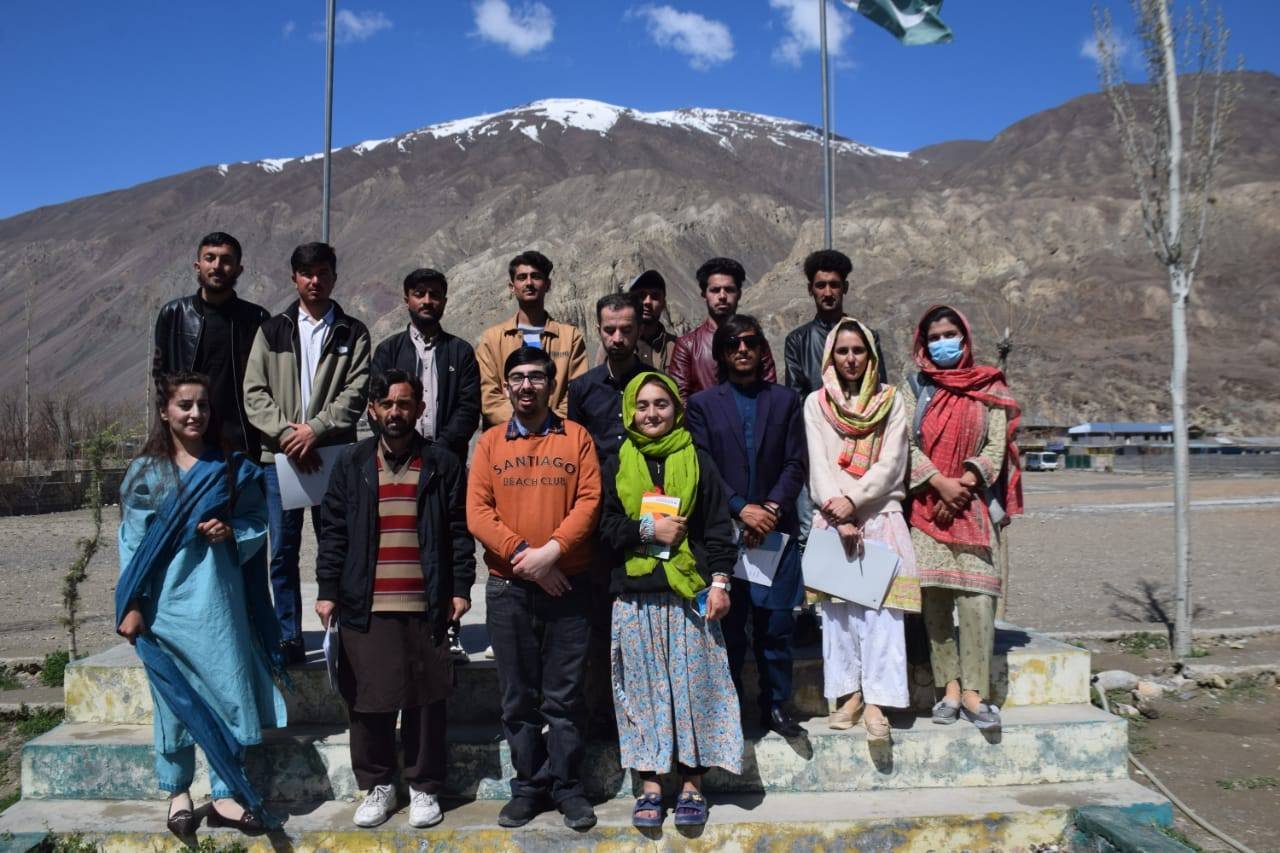
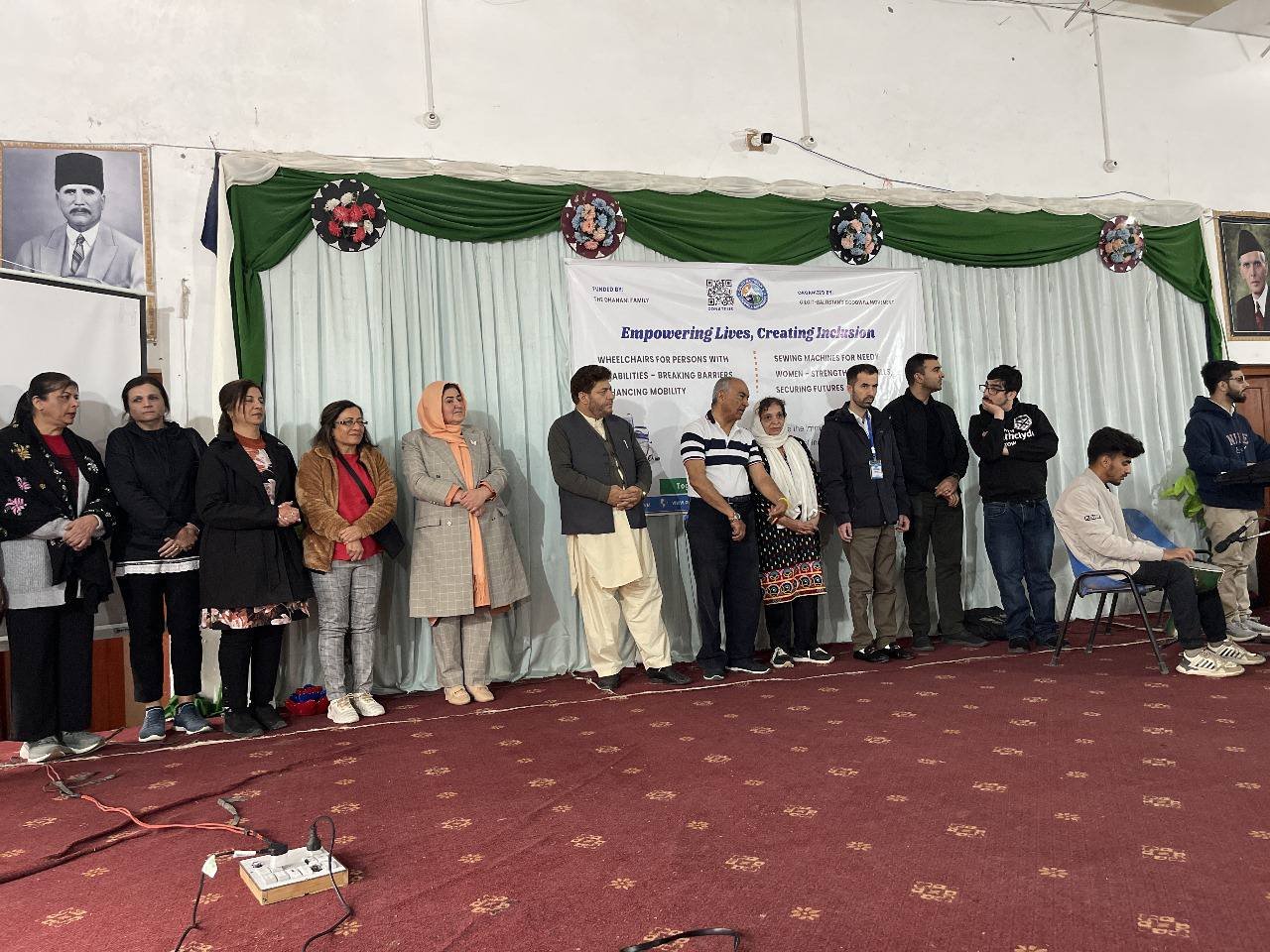
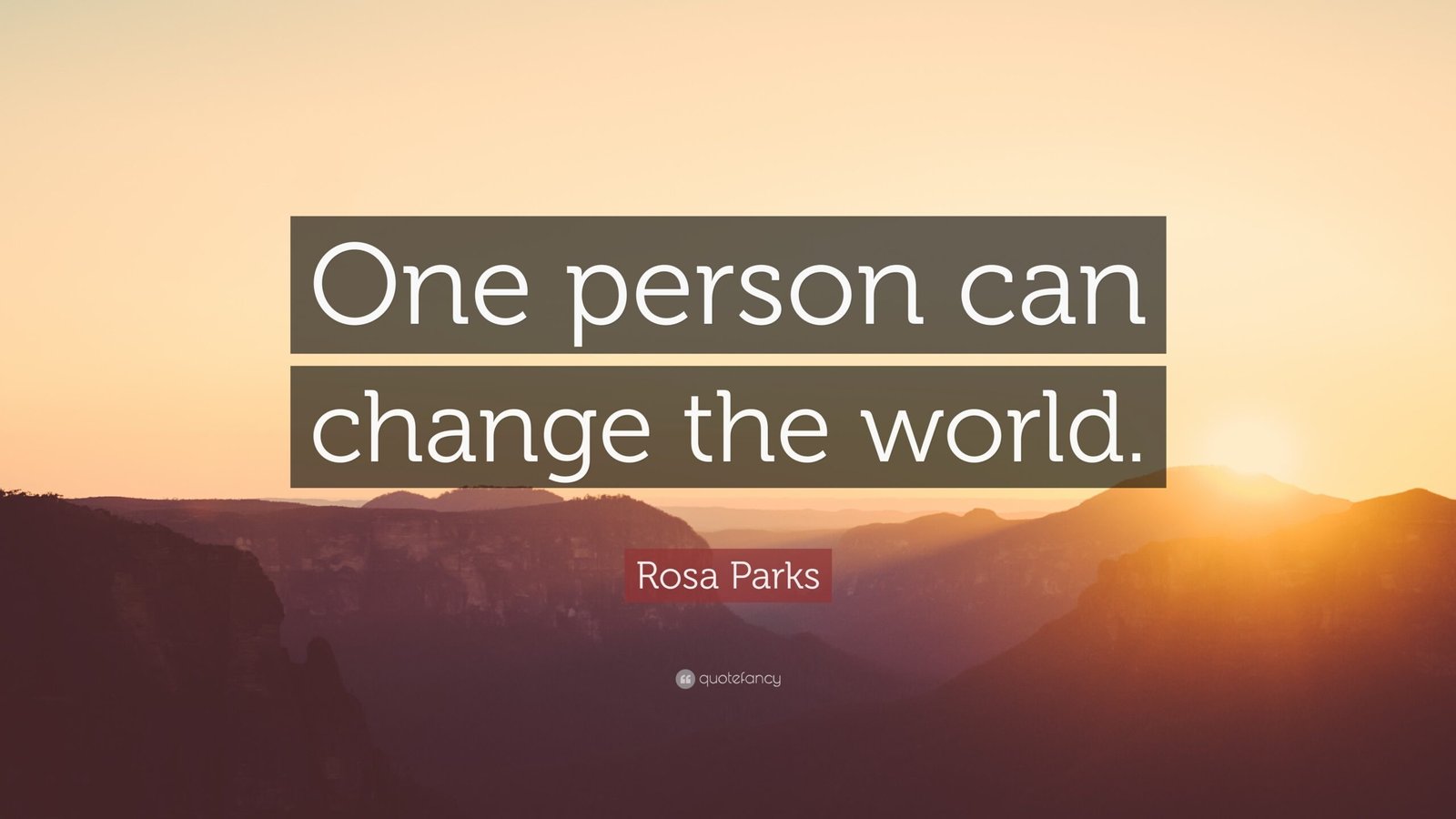
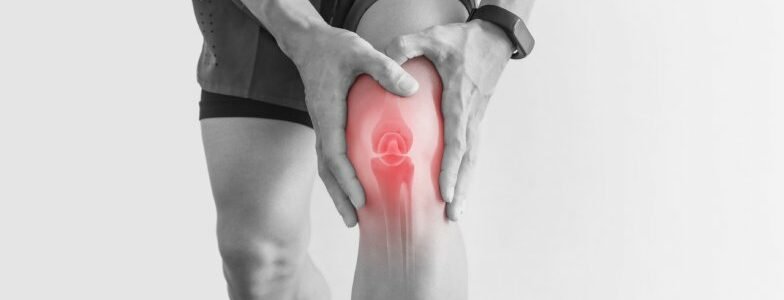
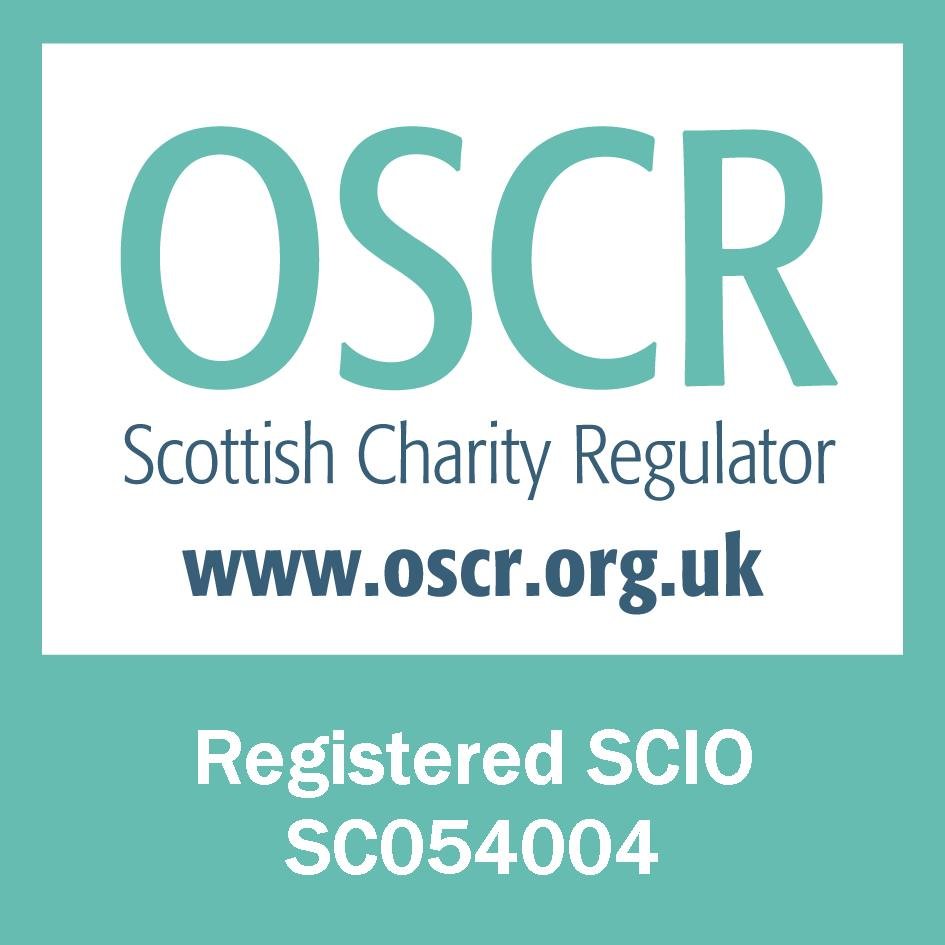
![WhoCares_BlackRed1[1]](https://gbgoodwillmovement.com/wp-content/uploads/2024/08/WhoCares_BlackRed11.gif)